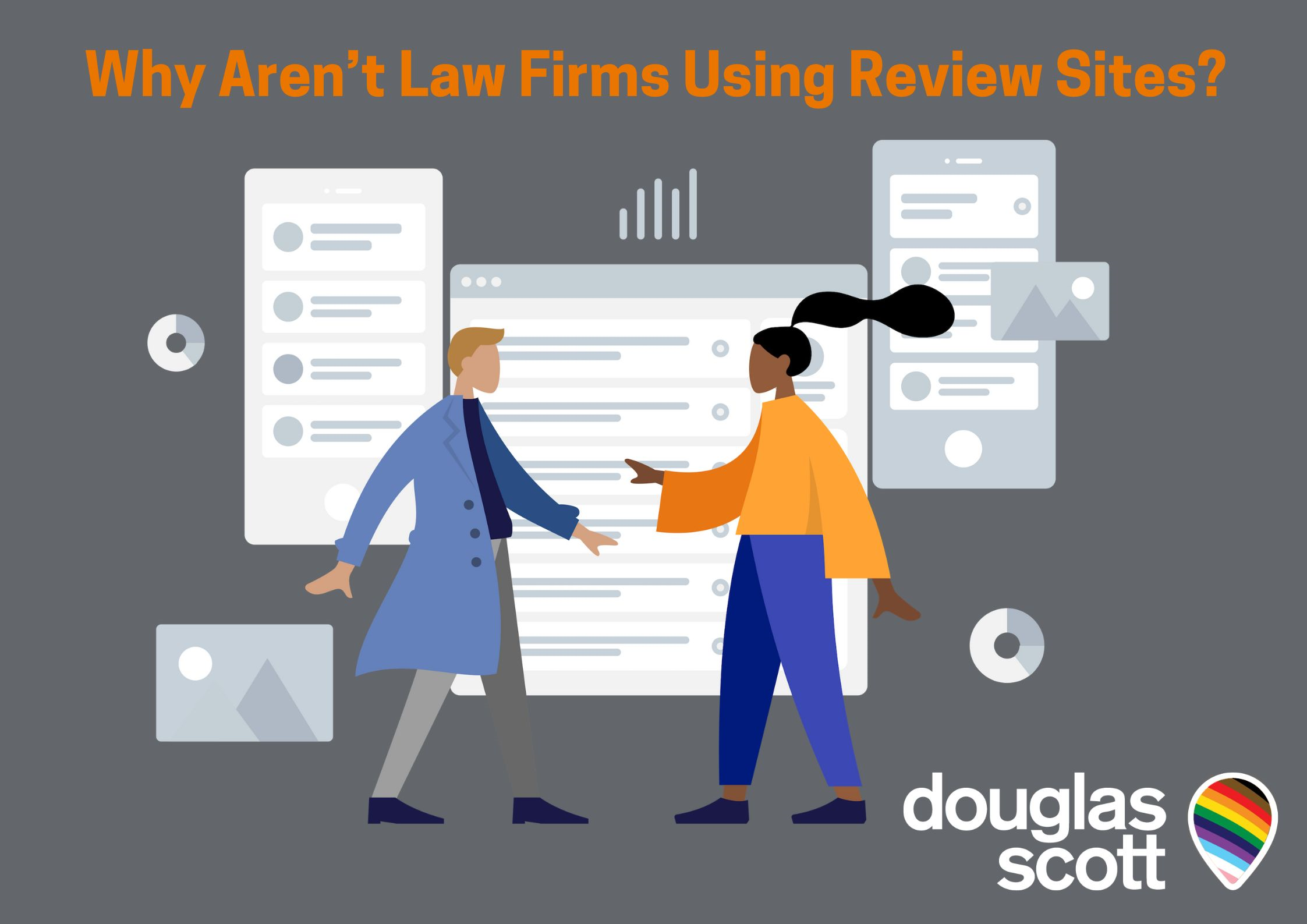Why Aren't Law Firms Using Review Sites?
Posted in Latest News on 29 Jun 2023

Review sites have quickly become a key tool in a business’ online platform. They are often seen as a way for customers to leave direct feedback, free from the editorial glare of the CEO or business owner, who might pick and choose what goes into a traditional advert. But law firms, it’s been found, have been slow to engage with review websites, and a recent study from the SRA has found that half don’t engage with them at all. Here at Douglas Scott, we love reviews – they offer a way for both clients and candidates to provide us with feedback on our services, and we can use these to praise our team of consultants. So why don’t law firms seem as keen to use them?
One major reason might simply be that people don’t know these services are available. When surveyed, 22% of public respondents would look at a review website when looking for a solicitor or other legal representative, which is a sharp contrast with the 88% that would look at reviews for other services and products. Many simply didn’t know they existed. Law firms aren’t going to waste time expending resources on a form of marketing that simply isn’t getting out there. Equally, however, it could be that law firms are simply reticent to use them, and were they to be used more, they would be more notable. After all, only 44% of firms are actively asking clients to leave reviews for their services on websites like Trustpilot, ReviewSolicitors or even Google Reviews. If the reviews aren’t out there, then people can’t go and look for them.
The SRA’s study also looked in detail at the reasons why people aren’t leaving reviews. The main reasons why were:
Having alternative systems of feedback.Concerns about fake or negative reviews.Client confidentiality.
Certainly, concerns about fake or negative reviews are a fair point: Which?, the UK consumer watchdog, recently found that people were twice as likely to buy a product that had been boosted by fake reviews. There’s also legitimate concern that larger firms can pay to have negative reviews removed, making their firms look better than they actually are. On top of that, there’s a fear that clients that did not get the outcome in court they were hoping for might leave negative reviews simply based on that, irrespective of the service they were given. Managing negative reviews could end up becoming a full-time job for that reason, and smaller legal firms might, once again, be priced out of doing so. The other reasons, however, seem more to be about operations and logistics for firms, aspects which some firms seem to have overcome to offer a review service at all. Maybe firms that don’t should look at those that do, to get around these issues.
It's clear that review websites are becoming a key part of the buying process, especially for online purchases, and that, while law firms are starting to use them, there’s many that are reluctant to engage with them. Those that do, however, are reaping the benefits: in general, the consumers that did use review websites found they were helpful and allowed them to make informed decisions about which services to use. The firms that did use review sites also found there were commercial benefits, as they saw more contact from consumers as a direct result of online reviews. Law firms that want to stay competitive might do well to engage with this tool – one that could potentially do a lot of heavy lifting for your marketing efforts.
Further Reading:
We would recommend looking at the SRA’s Access Panel summery on the subject, as it goes into much greater detail about the issue:
https://www.sra.org.uk/sra/research-publications/law-firm-access-panel/